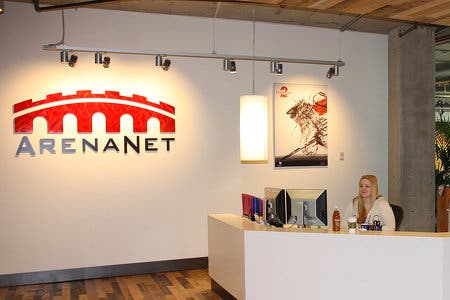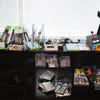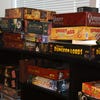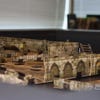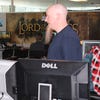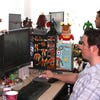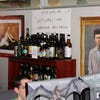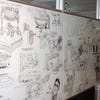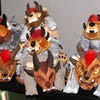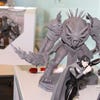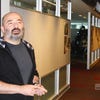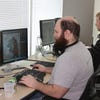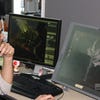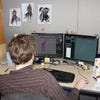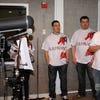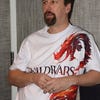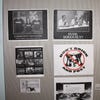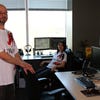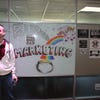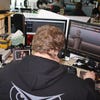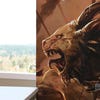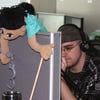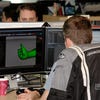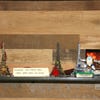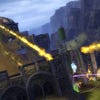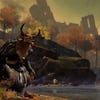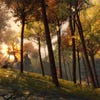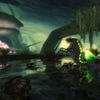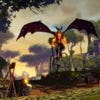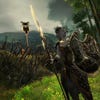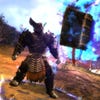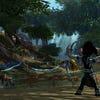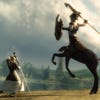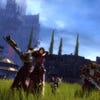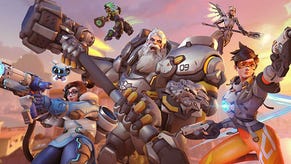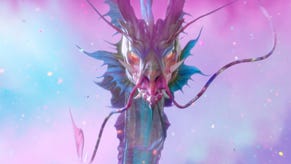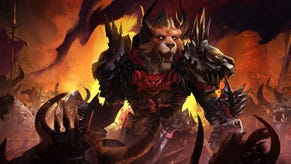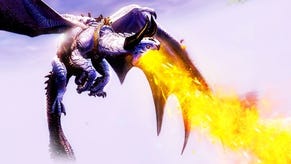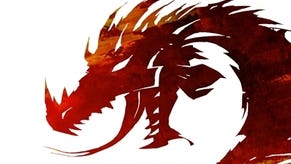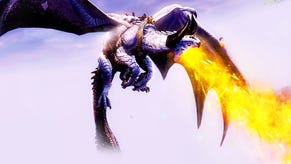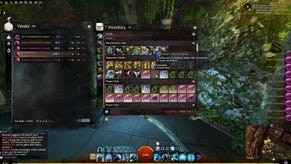Guild Wars 2: The Inside Stories
To Seattle and back again: what it's like on the inside.
Within the hundreds of hours of content an MMO offers, a million different stories can be told. But behind every MMO there are hundreds of stories often left untold. They are the stories of the makers.
Five years after work first commenced, Guild Wars 2 is in its year of release. Fans will soon savour a game they've waited half a decade for. And as the curtain begins to raise, I was invited to to spend a beta weekend alongside developer ArenaNet at its Seattle base, to live and breathe development of a game that's consumed the lives of its developers long before it's had a chance to consume the lives of its future players.
I went there for a snapshot of a company making a landmark video game, and I came away with emotional tales of sacrifice, teamwork and pride. Guild Wars 2's got what it takes to better World of Warcraft, but right now it's just potential - and five years of life and labour for its 270-strong crew.
Mike O'Brien
"Back then we were a young start-up, a scrappy company trying to make our place in the world, and now we have a team that's able to deliver - I think Guild Wars 2 is going to be the highest quality game ever released."
Mike O'Brien
Mike O'Brien tells me making an MMO is "the hardest thing anybody can do in the games industry". He founded ArenaNet 12 years ago. The men whose dream he shared, co-founders Jeff Strain and Patt Wyatt, have moved on. Back at the beginning, five guys made the first Guild Wars from O'Brien's apartment. Now 270 people are making Guild Wars 2 from a huge studio that took a year to build, spans two floors and used to belong to travel company Expedia.
"Think about what it takes," says O'Brien. "Think about what it takes to deliver an MMO, because an MMO is more challenging that any other kind of game. And then to deliver that at the highest quality in the industry...
"Back then we were a young start-up, a scrappy company trying to make our place in the world, and now we have a team that's able to deliver - I think Guild Wars 2 is going to be the highest quality game ever released."
ArenaNet moved in nearly a year ago, in May 2011. The old office was, quite literally, sinking into a swamp. Now, ArenaNet is wooden floored, white walled, open planned and lit naturally by windows at every turn. Glass walls with electronically sealed doors are used where possible. All around the tall and relatively new-looking office block are trees - firs, spruces, pines - and on the horizon, the Cascade Mountains.
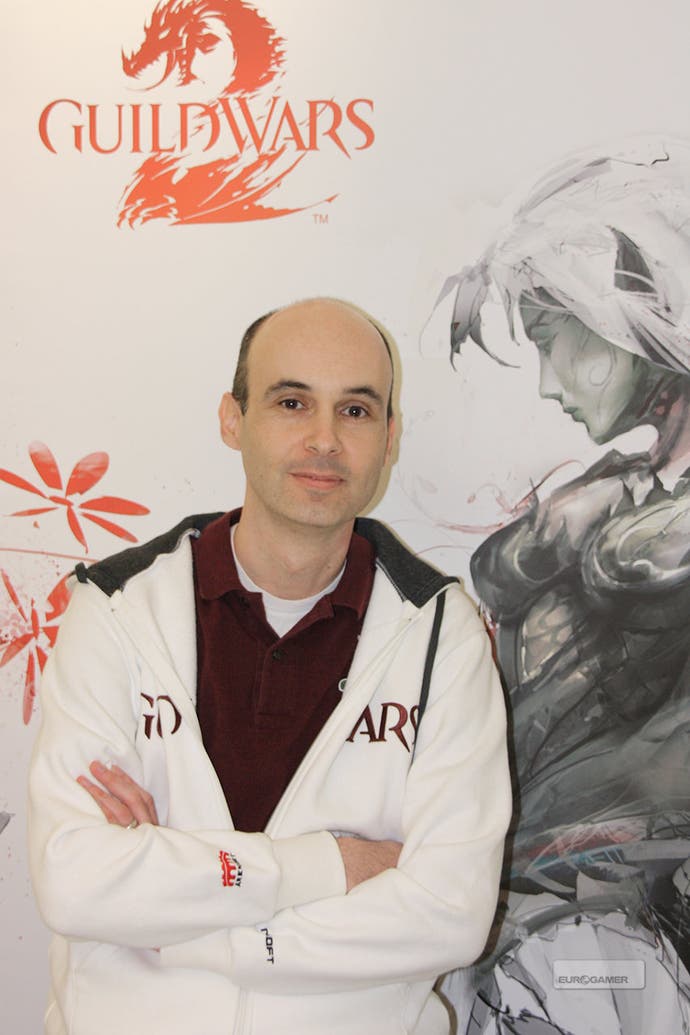
The ArenaNet office resembles two bagels, to my mind, piled one on top of the other. The hole is the seating and eating hub area, linked by a rectangular spiral staircase. Around the perimeter of the bagel on both floors are the teams building Guild Wars 2. Closer to the middle are thick-doored meeting rooms, a massive server room and, downstairs, a massive games room and bespoke sound recording rooms. The kitchen in the middle downstairs is equally vast, with fully stocked drinks fridges alongside tubular sweet, snack and cereal dispensers.
ArenaNet often orders meals in for staff to stop them faffing about where to get food when they're up against it. It maintains the Guild Wars 2 bubble. "I feel like I have loyalty to my people," O'Brien tells me. "And as long as I have loyalty to my people, then I'm going to make sure they're well taken care of."
The games room, just off from the kitchen, comfortably fits two ping pong tables, a fussball table, a Kinect area, an Xbox 360 pod, a PS3 pod and a four-seater tabletop gaming pod. Shelves are filled with video games and board games new and old.
Mike O'Brien, who coded the bulk of Guild Wars 1, can't afford to spend time doing much beyond running his company now. At the moment, he sits with the content team, in an area obscured by partition walls that can be moved around. Varying levels of graffiti announce which team occupies the space within. O'Brien may be boss, but his desk is like any other - more plain, even. He has a PC, a laptop, two family photographs and a baseball cap. It's a modesty that matches appearance and manner. He's an eloquent programmer whose words are considered.
The content design team looks to be the largest upstairs, and certainly the most colourful. There are toys, Nerf guns, pictures, posters, figurines, sports shirts on partition walls (a way of remembering former employees), plants, fish tanks, and a mad person working standing up at a raised desk. That cold number of 270 begins to melt away into separate lives, and separate people.
Ben Miller and Jon Peters
Ben Miller and Jon Peters are two of the longest serving content designers at ArenaNet. Miller's been here for eight years, Peters seven-and-a-half. They both look around 30 years old and they behave like brothers, their stories and lives intertwining.
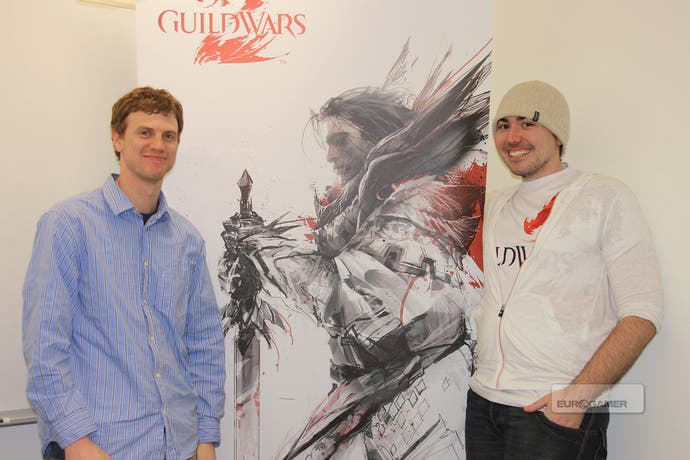
They help me grasp the enormity of the project. "I've worked at a lot of other game companies," Peters begins, "and big games that I worked on are dwarfed by the scope of this game. We're basically building ten games at a time. Building an MMO is not like building a game at all.
"Imagine you're trying to build one of the biggest games ever," he adds," and you're trying to build Facebook at the same time. And you're trying to let people play it within Facebook."
They're different people now than they were eight years ago, and they both agree things have changed at ArenaNet. Jon Peters has children, and those 15-hour days that got Guild Wars 1 out of the door are much more rare.
But they're not gone completely. The pair both recall a 3am finish in the run up to this beta weekend. But as Ben Miller notes, "the game's not going to not ship if we don't do this". The pressure is of one striving to do one's best work. "It's more self-imposed than it was then," Peters patters.
Colin Johanson
If Guild Wars 2 were a ship, Colin Johanson would be the figurehead. He's everywhere the game is, and he's the lead content designer for PvE or player versus environment - or, to put it another way, the beasties controlled by AI. He's been at ArenaNet for seven years, and advises me that, "If you don't fail once a day or once a week as a content designer, you're doing something wrong."
"This company is not really an entity, it's not really defined by the company rules. This company is really about the people. It's been that way since I started."
Colin Johanson
He's talking about not being too precious with what you create, because every day he says he chops things out, leaves things behind. "Every day you have to be ready for your stuff to be torn apart, and to figure out how to take that feedback and constructively use it to make better content."
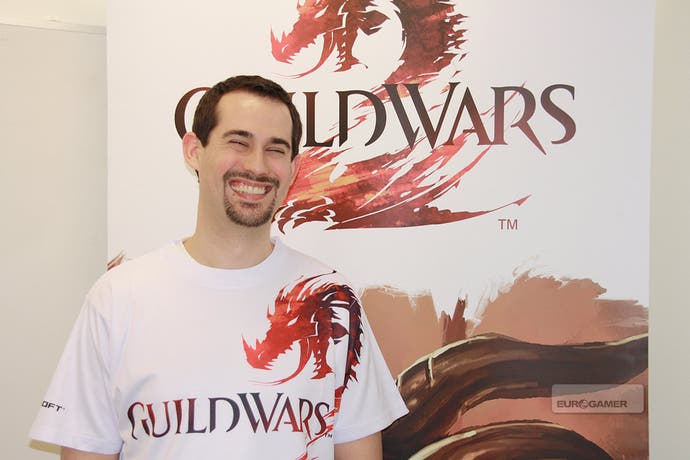
"The best content designers don't fall in love with the stuff that they do, because they know that it always has to change to get better. And they know that the best content is not stuff that you need to keep adding to, it's when you've taken away everything you can take away from it that you need to call it done."
Johanson recently read that what made Jean-Luc Picard and James T. Kirk great Star Trek captains was that "they were willing to blow up the Enterprise". "A content designer has to be the same way," he believes, and it's a critique-taking lesson he believes he's learned. Now he ties to help his 20-person team do the same thing. "No one piece of content in a game was ever built great by one person," he likes to tell them.
Johanson got to hire full-time a lot of long-serving contract content makers recently. "I can't tell you how proud I was to be able to tell them that," he earnestly shares, and calls it "one of the best days of my career".
So it's no surprise to find out that his worst days are when he has to say goodbye. "This company is not really an entity, it's not really defined by the company rules. This company is really about the people. It's been that way since I started." And he says 99 per cent of ArenaNet will say the same. "Whenever we lose somebody, especially somebody who's been here for a long time, or one of the big personalities in the company, it always hurts for a while."
Jeff Grubb
Jeff Grubb built Dungeons & Dragons worlds professionally long before ArenaNet was conceived. He worked on Forgotten Realms, Dragonlance, Spelljammer, so he's older than most at ArenaNet, although his ebullient manner and giggle reveal a boyish side.
Grubb joined the Guild Wars maker six years ago, and alongside Ree Soesbee he's in charge of continuity and lore. He lays down major story and plot points, fleshes out races, places, faces, and establishes "a lot of general rules" - a foundation and a framework. And Jeff Grubb pops it all in a Wiki. People come to him and ask how an idea of theirs will fit in the world, or how it breaks the rules. But those rules are bendable.
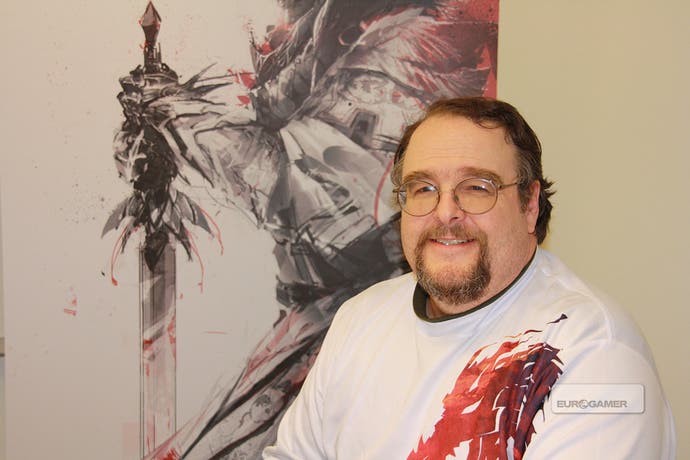
"Daniel [Dociu, art director] did this incredible drawing," Grubb recounts. "It was this incredible art piece of this iceberg with a Buddhist temple on it. And it sails. And he said, 'Can this be in the world?' And we look at it, turn it upside and say, 'Yeah, we'll do something with it!'
"We changed a map entirely - one of the northern maps. We put more water in it and had this race that was fleeing the Ice Dragon on these big iceberg ships.
"What do they look like?" he continues. "Well, Kekai [Kotaki, lead concept artist] had done some polar bear men on his own as an idea, so we said, 'OK, the polar bear men live in the Buddhist temple on the iceberg!' And that's how we got the Kodan and the sanctuary ships - that all started from art pieces that were generated.
"That's the sort of creativity that when you're a world builder you have to have. If you come in and say, 'This is my vision, this is what it has to be like,' it will end in tears. The system just isn't set up for that. Everybody is throwing in, everybody is contributing, and people do fantastic work when they have a piece of the action."
Mike Zadorojny
Quality Assurance - or QA - doesn't sound like a romantic occupation. The team I see on the top floor frown with concentration, frowns that are understandable given the imminent beta. But what's invaluable now wasn't always a part of ArenaNet, not until six years ago, when Mike Zadorojny joined, and made it his mission to prove how helpful a honing process QA could be.
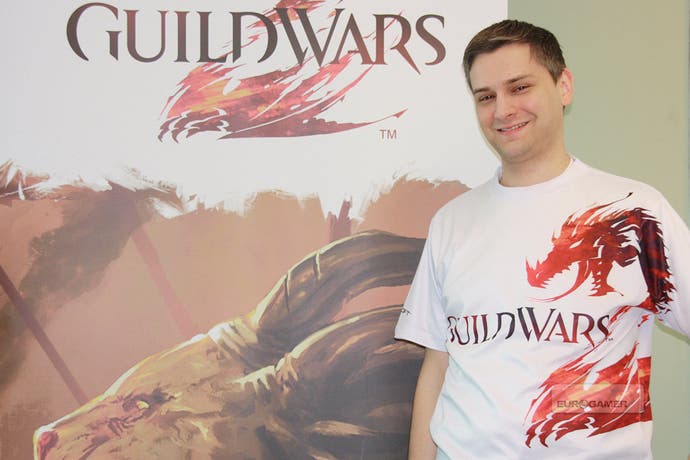
After Guild Wars first expansion Factions was released, "every department in the company came to us and was like, 'Here's a request for this random thing!'
"We proved one time around that we could do something fantastic for one group of people, and then everybody else started realising, 'Oh, we can rely on these guys, and they can help us out and make sure the game is even better.'
"The fun and weird [days] usually happen when the artists get involved," Zadorojny recalls. "Kristen Perry and Susan Jessop - they did pretty much all of the costumes we released for Guild Wars 1 - and they're some of the most fantastic people I've had to work with. And they're the most creative.
"They'll come at you at the deadline when all the art needs to be signed off on so we can start doing production and get out the door, and they'll come in and be like, 'We don't feel it. This stuff isn't good enough. We want to start from scratch.' And you're like, 'Well, the schedule! We have to do this!' And at the same time you realise that these guys, their creative vision is paramount, and they understand what's going on and what the big selling points of this stuff is. And so you roll with it." It costs an all-nighter "here or there", he shrugs, but the artists "would be in the trenches with us".
Randall Price
At a nondescript desk in the marketing area is poised the business brain of ArenaNet, senior vice president Randall Price. Once a lawyer, he represented the venture capital firm that first funded Mike O'Brien, Patt Wyatt and Jeff Strain's vision. "I sat down in a conference room with my client and the three founders of ArenaNet and their attorney, and we hashed out in about three hours the financing deal that put the money in ArenaNet, and that was literally before the company had started.
"Soon after that deal was done I was representing ArenaNet, and I've worked with ArenaNet all through the years." And when Jeff Strain left ArenaNet to run NCsoft West, Randall Price was hired, merging his passions for gaming, art and the business of gaming under one roof.
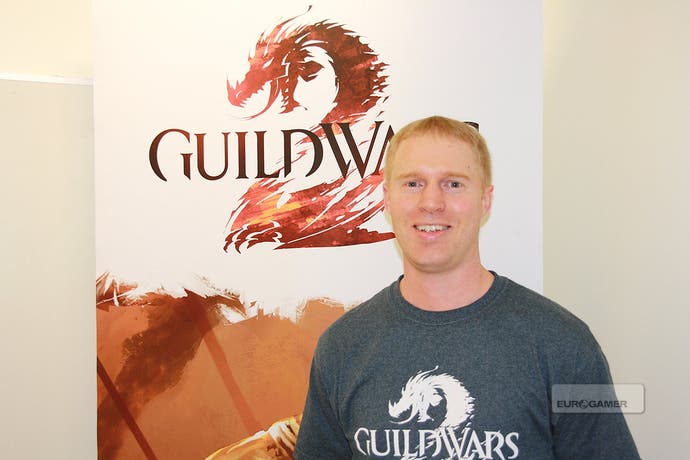
Something that stood out for Randall Price was Guild Wars 1 passing five million sales. (It's now sold more than 6.5 million, making it one of the most successful PC games ever.) All of those fans, Price believes, are "frothing at the mouth for what we can do in the future". And it's they who will carry the torch for Guild Wars 2.
"We can not go forth and proclaim, not in a cocky way, that we're trying to make the number-one MMORPG in the industry, in the world - you can't necessarily have that goal as a fresh IP without the people you know are going to be the stalwarts, that are going to be out there talking about us, day in, day out, to their friends; talking about us on the forum, whether it be Guild Wars forums or in the comments section on your site," Price proclaims.
Having a platform like Guild Wars 1 to build upon explains why everyone is betting so big on Guild Wars 2. It explains the offices, the five year funding of a 270-person team. "We, frankly, put a lot of money into this space and we're invested here for a long time in a very positive way. We're in this," Price declares. "There are no ifs, ands or buts about ArenaNet and what we're going to be able to do in the future. We've been given the tools by NCsoft financially and otherwise to be able to do that, to be able to build the team here where we have confidence in ourselves, in our own leadership."
Daniel Dociu
Daniel Dociu leads our tour of the bottom floor. He's the art director of ArenaNet (and of NCsoft North America), and an incredibly important part of the Guild Wars story. The series wasn't always a powerhouse of art. NCsoft persuaded ArenaNet to hire Dociu in 2003 because the Guild Wars 1 art "wasn't quite cutting it". "We basically threw away every single art asset, every single pixel from the old game, and we rebuilt it from scratch," he explains.
Daniel Dociu, a casually dressed Romanian who's now 51 years old, impacted ArenaNet like a meteor. Guild Wars art now adorns the ArenaNet walls, and now art is the identity of Guild Wars and of ArenaNet. Today, Dociu commands an army of 80 artists - a team as big as an AAA video game developer.
"Art was just, more or less, a vehicle," Dociu remembers, "a means to an end and somewhat marginalised. It took all these years of hard work to get the recognition that we now have. And it feels awesome."
"To see that level of loyalty and excitement about something you do, it's really moving - almost scary or intimidating at times, to tell you the truth! You can't help but think we're just making a game, we're not curing cancer or anything, you know? Let's keep some sense of perspective - let's not take ourselves too seriously. But that's not something the fans want to hear. To them, this is their life, and they really really put a lot of their heart and soul into it."
Daniel Dociu
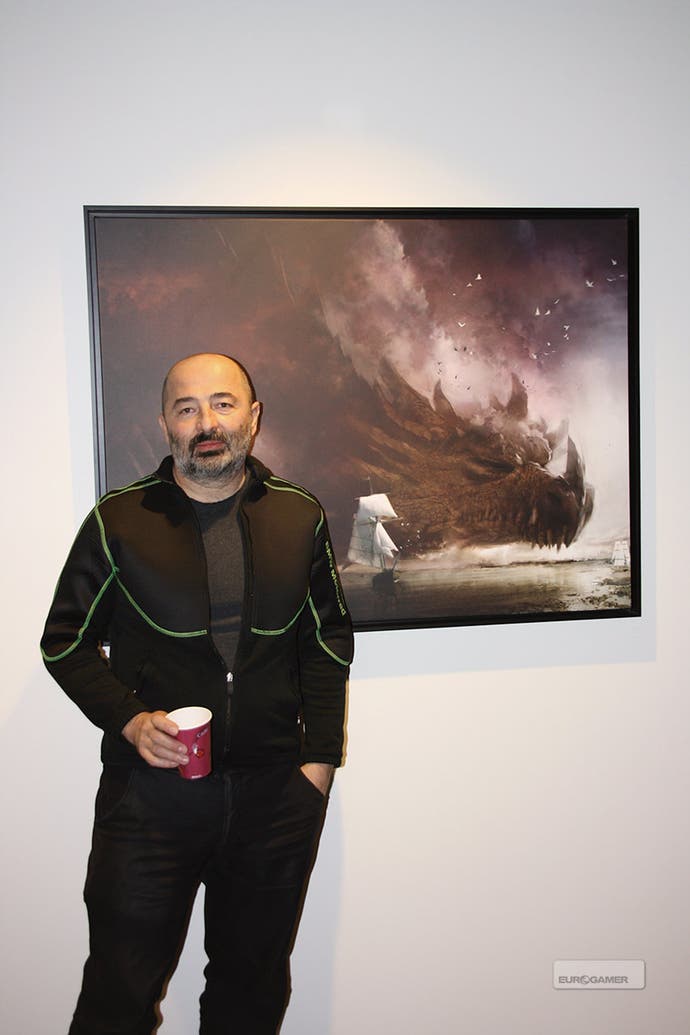
Daniel Dociu has also been personally recognised at the highest levels for his work. In 2011, he was awarded the prestigious Exposé 9 Grand Master Award for his career achievements.
"If we look at our work from eight years ago, it's laughable!" says Dociu. "At least to us. And I'm sure that another three or four years down the road, if we look at stuff we're doing now, we'll see its weaknesses here and there. And that's great, it's part of growing as an artist. It's probably the one thing that this art-centric development culture has allowed us, and why we're still here and appreciated. It's conducive to growth. You don't feel like stagnating ever."
Dociu sits with Kekai Kotaki and others in the quieter concept art room. Kotaki sketches away on an art tablet, a gadget that's on nearly every desk. The other art rooms are busier. A man with a long beard but no hair on his head shows us a room where I see people making objects and environments.
We see rare, top-level weaponry being made. An enormous and wide two-handed sword has no blade but a shimmering, ethereal beam. Behind him, another bald-headed man crafts an elaborately designed and massive axe. In the other art room, costumes are being made, as well as monsters and a hand in a thumbs-up pose. I wonder how much art this would all represent if painted on canvas. "Oh!" responds Dociu. "I don't know. We probably wouldn't store them in a gallery, but stacked in crates in train cars full of stacked art. It's thousands and thousands of pieces."
Dociu has watched the team he hired grow up around him, and with him. "Now they're all either married or have families," he remarks, "or are published artists and extremely successful winners of international competitions." He tells me "it's almost like a family," how it "matures and evolves and changes over time".
Small arguments happen often, daily, but the bigger conflicts are mostly avoided. "We've learnt to pick our battles," Dociu says. " "We're more often than not able to diffuse the tension and not allow it to escalate to major conflicts. But sure, it's, again, like a giant family, where people argue and have differences of opinion. And sometimes these get resolved elegantly and sometimes ... not so much."
James Ackley
The only person downstairs not sitting in a room with other people is audio director James Ackley, who's in a small office all of his own, conjoined to one of the sound-proofed Foley (the process of recording live sound effects) rooms he designed. It's perfectly quiet, even though the huge server room with its own dedicated air conditioning lives directly above. Floating floors, apparently.
There are a handful of these Foley rooms that make up the sound suite. Before Ackley joined, nearly four years ago, most sound was outsourced, bought or recorded outside when it wasn't raining. Now his team can experiment and record on a whim. "We can just go in there and try ideas," Ackley says, telling me of the time team member Maclaine Diemer trod on shells and crisps and cereal to get a creature's footsteps right. "Sometimes it works, sometimes it doesn't, but if you don't try you're never going to know."
"We had this huge chain and like a twelve-pound shot put, and we set those on top of this two-inch-by-a-foot of dry ice and it just sat there for a minute, and we all just sat there trying to be as quiet as possible. And then it started to vibrate, and I'm not kidding, it sounded like, 'Rrrrrroarrrrrr.' It started making these scary sounds!"
James Ackley
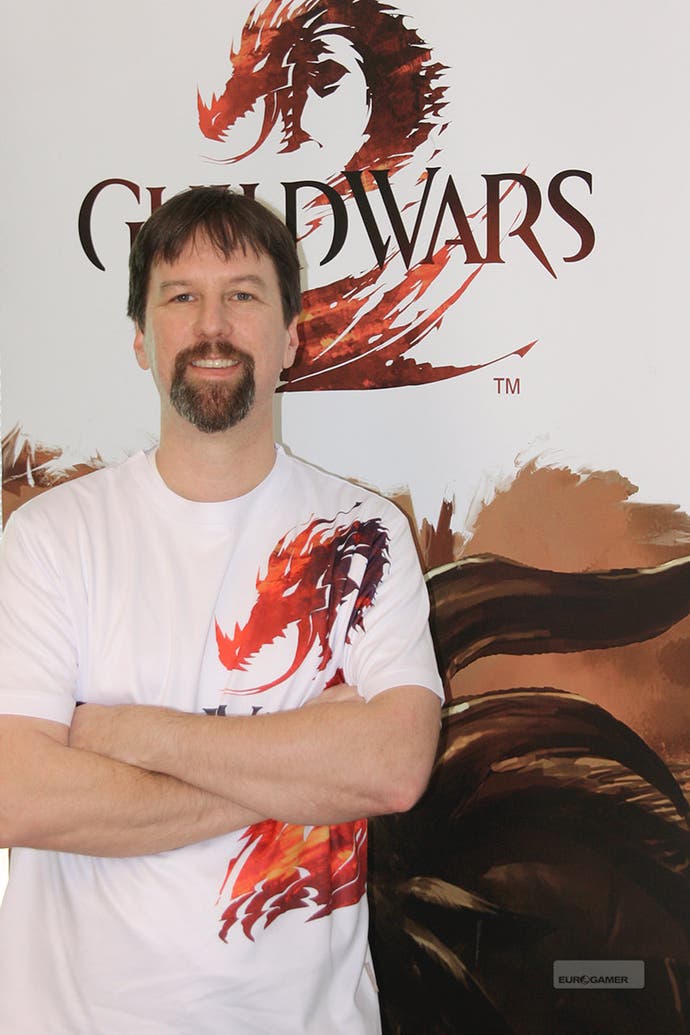
"So if you have a piece of metal that has a resonant tone, then it will start to resonate. And it's amazing!" James Ackley lights up. "It's as simple as, you can have a little chunk that's as big as a dollar bill and set a knife on it and it makes screech sounds. People have used it for a long time to make screechy creature sounds. Jurassic Park used it for the raptors."
He goes on: "We had this huge chain and like a twelve-pound shot put, and we set those on top of this two-inch-by-a-foot of dry ice and it just sat there for a minute, and we all just sat there trying to be as quiet as possible. And then it started to vibrate, and I'm not kidding, it sounded like, 'Rrrrrroarrrrrr.'
"It started making these scary sounds! And then it started to kind of oscillate and it would move itself, get pushed off, move into a new spot and so that metal wasn't quite as hot as it was before, quite as cold, and it would change the tone. It was amazing, just sitting there watching this dry ice push the metal around."
Oh, and that fireball sound in Guild Wars 2? That's the sound of a one-foot diameter ball of Kevlar rope wrapped in chicken wire, dipped in kerosene and gasoline and then swung around lead sound designer Drew Cady's head one night in Drew Cady's garden. "It was this huge, big, fireball and it sounded like a jet flying by. It was amazing," recalls Ackley. "It was really cool."
As with Daniel Dociu, I ask James Ackley if he can begin to describe the amount of sound in Guild Wars 2. He came from F.E.A.R. developer Monolith Productions, where games were expected to last someone around 20 to 50 hours. ArenaNet expects "three hundred to a thousand hours or something for this game, for a lot of people to play", Ackley tells me. "It took me probably a year and a half before I realised how big it really was, and how much work there really was to do."
In all the rooms I visit there's a distinct absence of nerves. The depleted writing team - most are in LA overseeing voice over work - interrupt a morning stand-up meeting to talk to us. They're happy, relaxed. Even when the beta begins, the many staff that pop in to see and play with us in the testing room appear relaxed and keen to join in. Many turn up again on Saturday to play, and some with their families. The nervy tales I hear about the Gamescom 2009 and Gamescom 2010 - when Guild Wars 2 was first revealed, and then first made playable - are now soft memories. "We have seen how our own opinion about our own game has gotten stronger," Randall Price explains, "and [there's a] more forceful confidence that we've got something special here."
Reflection
Mike O'Brien stressed at the very beginning of our visit that Guild Wars 2 doesn't have a release date. The "when?" of this gigantic operation will depend on the beta. But it's clear the end is in sight, and that every facet of ArenaNet wants the world to see what it's poured five years of hard work into, because they genuinely believe they've made something great.
Having seen their knowledge and dedication first hand, the sentiment is infectious. But one day not long from now Guild Wars 2 will be judged, by its numbers and by its quality. Another chapter will open for Guild Wars 2 as this five-year chapter ends. And there's something bittersweet about that for ArenaNet. This moment, this team, may never come again.
"At my age, I don't feel like I have the luxury of wasting a development cycle, of putting five years of my life into something that's less than relevant or game changing," Daniel Dociu says. "Will it feel big enough, relevant enough, to where I can look back and say, 'Hell, this was definitely worth putting five of my last years into?' And I hope that's going to be the case, but you can't help but be nervous about it."
"I feel I have accomplished a lot," he adds in reflection. "I can't help but feel good where my career went over the last eight years. I could have very well been buried and doing the same old thing at another place, or one of my previous places of employment, and plateaued, to be jaded by now, and treat every day as 'another day at the office'. But it's none of that.
"To this day - and I'm not just saying this - to this day, every morning I get up excited and look forward to the challenges that they will bring, and the hope, always hope, that I will find an hour or two to do some hands-on work - artwork or, if not, even the managerial responsibilities are so challenging and demanding that there's job satisfaction in that as well. It's still exciting. It's still worth getting out of bed for."
"Working on a project like this," Mike Zadorojny tells me, "it doesn't come along very often. This is hands-down the biggest title that I've ever worked on, in terms of the potential of what it can actually do." When he thinks of all he's been able to do here he feels "special". "Blessed, I guess, is another word for it."
"It's hard not to get caught up in the moment and get swept up in the emotions of the hype that's existing outside of this company. The fans are demanding. They're super excited, but they're demanding something that's fantastic, something that's great. And I just hope we can deliver up to their expectations. We think we've been able to make something great, and we just hope that the fans can agree that this is something that's truly super."
"A little part of me is going to be sad when we're done," admits Jon Peters. "The likelihood that I'll be working on a game that has this much... this scope ever again is pretty low. It's just so massive. It's indescribable really.
"A lot of the game and how it got there is about the team and about the people that built it. The team, to a person, is definitely never going to be assembled again, for this long of a period, to build this big of a thing. There's going to be some changes here and there. We've been here for eight years, and we've worked on other games. You kind of want to appreciate all that it took to get here, and what we have now - that last step we have in front of us."
"You're going to be coming back here in five years and asking me that question [would you do it all again] again, and I'm going to still say I wouldn't give it up for the world. We have an amazing future ahead of us."
Mike O'Brien
"And, I guess, you want to enjoy it," Ben Miller suggests.
"I feel pretty spectacular," Colin Johanson beams. "This is my dream job. My parents, when I was a little kid, used to tell me all the time that you will never get a job in videogames. You need to stop doing this. You need to find a real job. And now they tell me, 'Well, we're glad you didn't listen to us.'
"Yeah," he adds, "I couldn't be happier."
"I feel super proud," Randall Price reflects. "I won't work at a company or be a part of something that I'm not passionate about. And here, there's nothing that has to be made up, or, 'I'm just going to put on a smile today.' No. I absolutely love this studio, I love my job, I love this industry, I love the people I work with. And there's nothing I would substitute for that."
"I'm very excited about this project and I speak for others: we're ready to go, we want to be done," Jeff Grubb says. " We're not there yet, we've got a lot that still needs to be done, but every morning we come in just really gung-ho about it - and I see it in my co-workers, and I see it in my own work, that we're very proud of what we've done, and we're still very excited. And after six years, that's saying a great deal."
"We had a big celebration for everybody who's been here for more than five years," he reveals. "We all went to this Brazilian meat-on-a-sword place, and we looked around and there must have been around 40 of us in the room. And I was stunned, because for a company to have that kind of stickiness... We've been here for a while and we've hung together through a lot of stuff, and I'm really proud of the team. We've been here as a unit."
"The amazing thing about that lunch," Mike O'Brien chimes in, "was I looked around at the team and these people had all come on during that [early] phase and they're all still here. The teams that have built this company, they're all still here. The old-timers from Prophecies, the old-timers from Factions. It was a moment of reflection that this is a whole group of people that came on all at the same time, and we've been through this journey together."
"Any of us, we want to look back at our lives and go 'wow, we really shook up the industry, we really made a game that changed the way people thought about gaming.' We've had an opportunity to do that. And so I wouldn't give it up for anything. And we continue to have that opportunity at ArenaNet.
"You're going to be coming back here in five years and asking me that question [would you do it all again] again, and I'm going to still say I wouldn't give it up for the world. We have an amazing future ahead of us."
